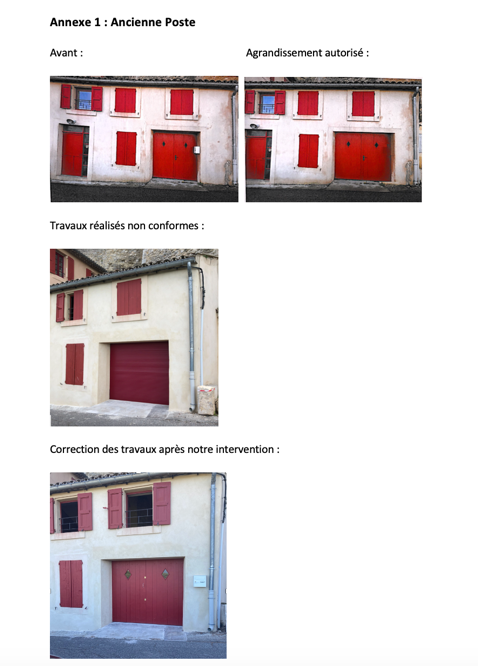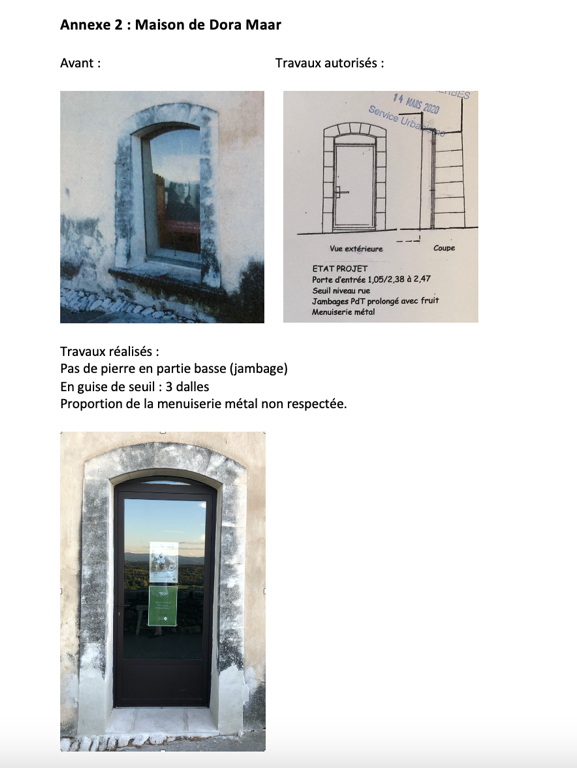


SUCCESS STORIES FROM 2023-2024.
Ancienne Poste: non-compliant garage door
he administrative authorization (DP) provided for an identical wooden door.
Despite this, a metal roller shutter had been installed...
Following our appeal, the owner agreed to review his copy and comply with the authorization obtained. See attached photos.
Maison de Dora Maar: non-conformity of store door
The administrative authorization (DP) provided for the demolition of a window sill, the continuation of the stone frame down to the ground and the creation of a stone sill.
The proportion between the glazed door and its glazed transom was balanced.
The work did not respect these three points: a coarse cement rendering was used to replace the ashlar, 3 stone slabs were laid as a solid sill, and the glass door frame does not respect the authorized proportions at all.
In response to the Association Dora Maar's refusal to rectify the situation, we contacted the owner of the walls, the Fondation Mérimée, who agreed with us and gave us a written undertaking to launch the work to bring the building into compliance by early 2024.
